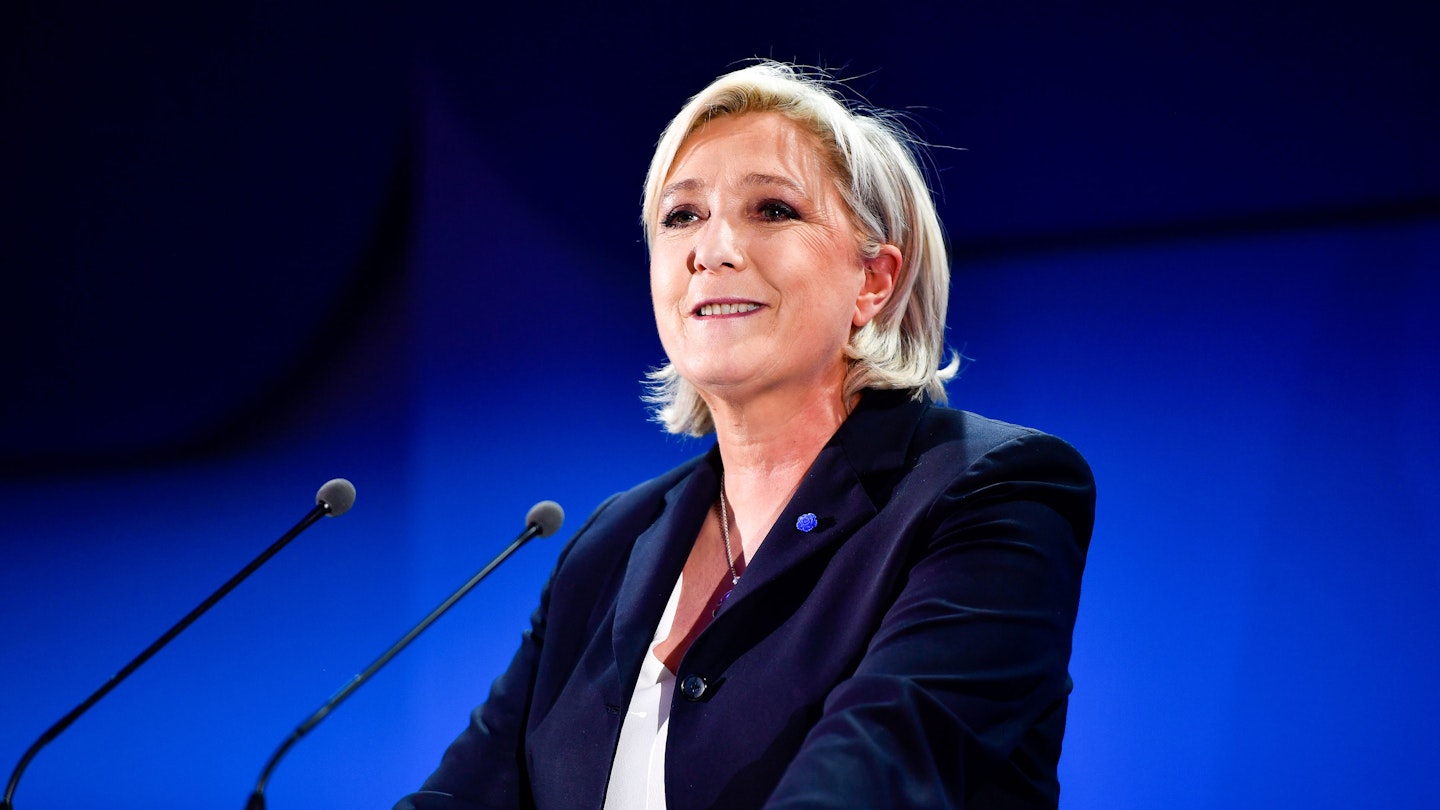Marine Le Pen could become France's first female president on May 7, after securing over 21 percent of the vote in the country's primary elections this weekend.
The Front National leader will stand against independent candidate Emmanuel Macron as the country goes to the polls next month, amid a backdrop of fierce political discord.
So, how much do we really know about the divisive, anti-establishment politician? We take a closer look at the events that shaped her far-right agenda.
Childhood trauma

Le Pen formed an understanding of the violent and extreme nature of politics aged just eight years old, when she survived a bomb explosion on the family home in Paris.
In her autobiography, she recalls how she and her two older sisters "were on our knees shivering, holding hands, praying with the fervour of despair… when we heard the voice of our father shouting, 'Girls, girls, are you alive?'"
The target of the attack was her father Jean-Marie Le Pen, a former paratrooper in the Algerian war and convicted racist, who had founded the far-right Front National party just four years before.
No-one was killed in the explosion but the seismic event would go onto colour Le Pen's world vision, and may have contributed to the "cassant" ("brittle") exterior that many commentators observe in the politician today.
"That night I went to sleep like all little girls my age. But when I woke, I was no longer a little girl like the others," Le Pen recalls in her biography.
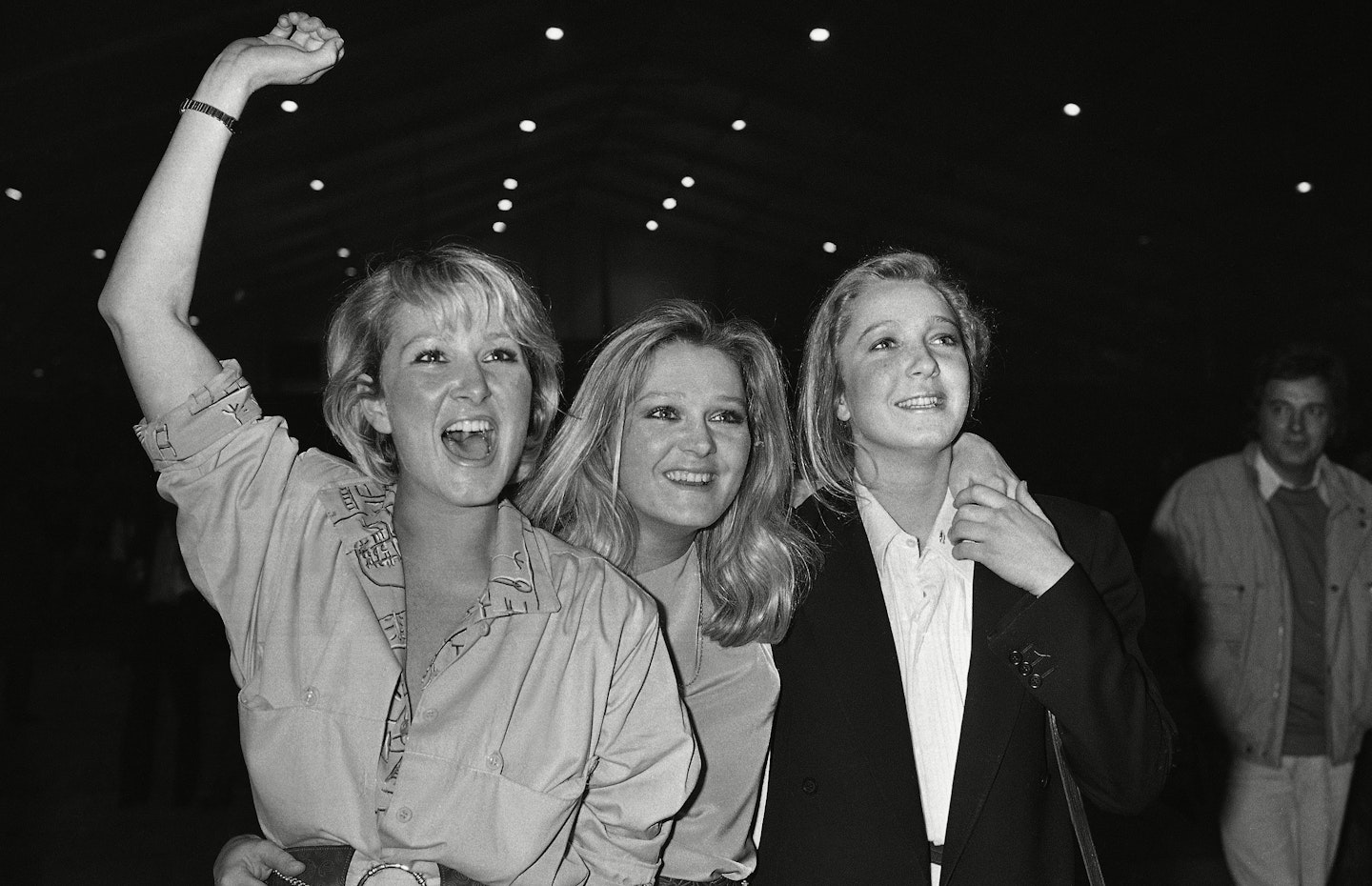
"After everything she went through in her youth, she built herself a shell," her Front National colleague Steeve Briois tells the BBC.
A young Le Pen lost her home in the attack, and she began to understand the burden associated with her contentious family name.
Schoolfriends were no longer permitted to spend time around her "dangerous" father, and teachers would sometimes refer to her and her sisters as "daughters of a fascist".
A conflicted upbringing
This sense of isolation was enhanced by the slew of extremist political characters who visited the Le Pen's new house, day and night.
"All day long — morning, noon and night — far-right characters from the party come every day," says Olivier Beaumont, who wrote a book about the Le Pen family. "... It's a house of political violence and she's going to grow up bathing in this environment."
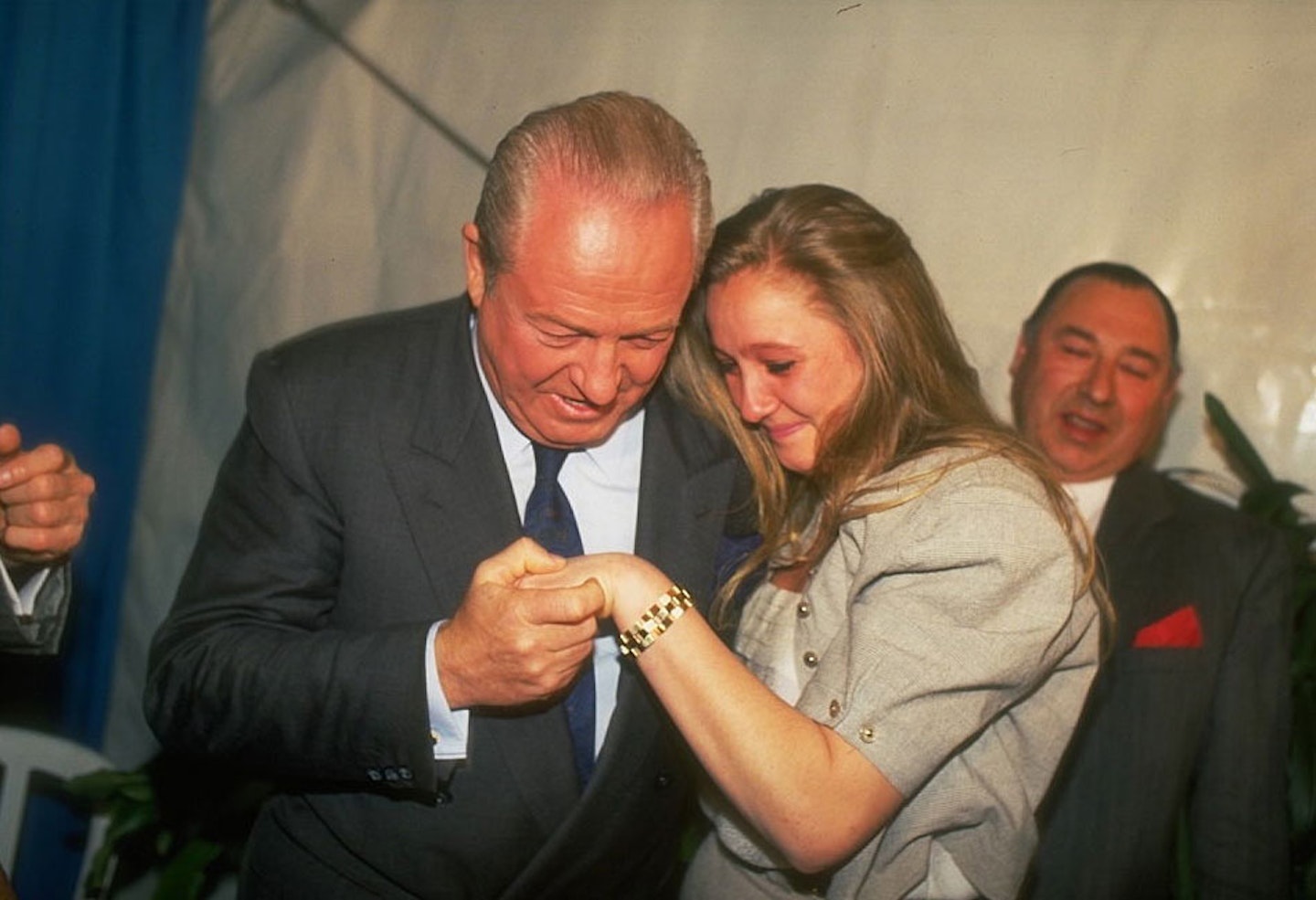
As the Guardian reports, her home life was often fractured in a domestic sense too.
The Le Pen parents lived in a separate annexe to their children, who were looked after by a nanny, and frequently went on long holidays without them.
When Le Pen was 15 years old, in 1984, her mother suddenly left the family home without warning.
Le Pen would not see or speak to her again for another 15 years - as her parents underwent a public, and very messy, divorce.
Biographer David Doucet says Le Pen grew up in an "odd, distant" atmosphere.
"She lived almost 20 years without her mother. Her father hardly knew her. She was brought up by nannies and governesses, left to her own devices," he says.
Like father, like daughter

Even as an adult, Le Pen did not venture far from the realm of her father's influence. She trained as a lawyer, but spent much of her time defending those caught up in extreme right movements.
Both her marriages - now ended - were to Front National activists (she's currently in a relationship with the vice president of the party).
In 1998, Le Pen quit as a lawyer and joined her father's party, winning her first local election a few months later.
"She tried to strike out on her own," writes political essayist Renaud Dely, as reported by Bloomberg. "It was a failure. The youngest daughter never managed to break away from her father."
"De-demonising" the Front National
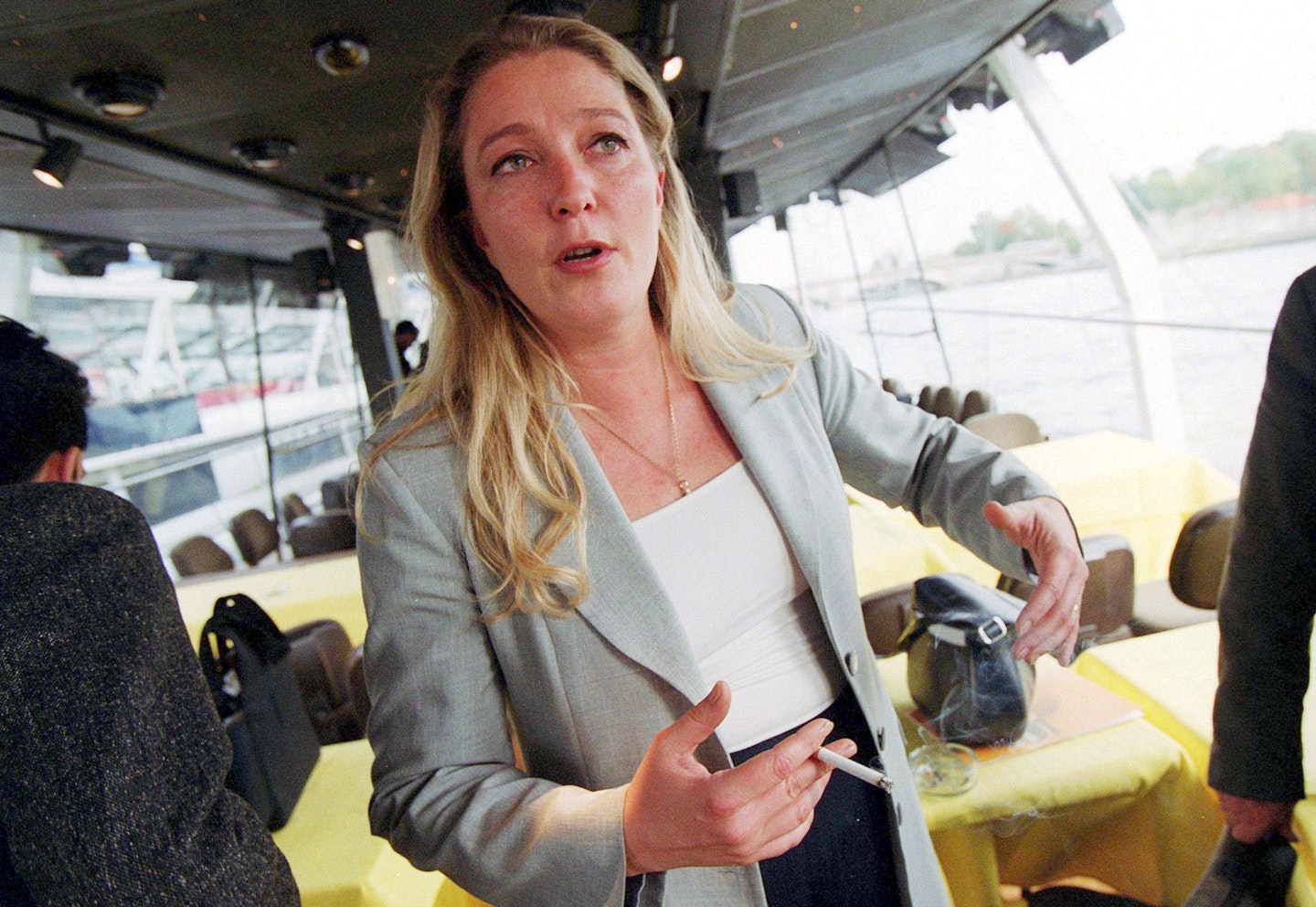
Her father's failed election bid of 2002 represented a turning point for Le Pen - and one that would ultimately put her on a collision path with her own father.
It was the closest Le Pen senior ever got to victory, and yet Jacques Chirac defeated him in a landslide.
Le Pen realised that in order to attract mainstream voters, the party needed to rid itself of its more obvious racist and anti-Semitic sentiments.
"That's when she emerged," says political researcher Nicolas Lebourg, from the University of Montpellier.
"She understood that as long as the party was branded as racist and her father continued to deny the Holocaust there could be no future.
"On May 5, 2002, Marine Le Pen decided to change the National Front."
An explosive family feud
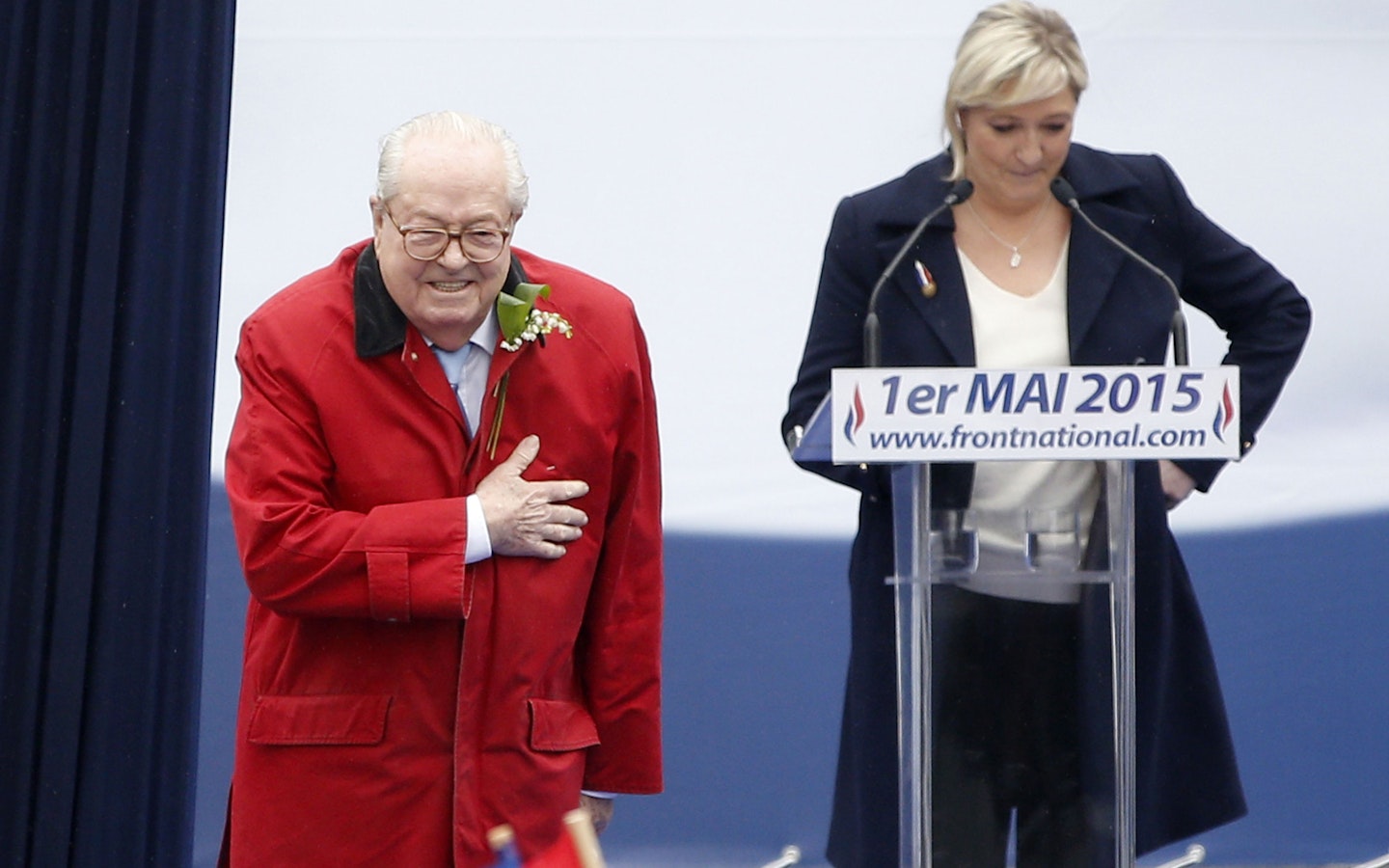
Despite minor hiccups and humiliations, Le Pen and her father continued to work together and she took over the party with his blessing in 2011.
But Le Pen became more and more obstructive as his daughter attempted to steer the Front National away from its racist and anti-Semitic origins.
While Le Pen worked to give the party the veneer (if not the substance) of respectability, her father Jean-Marie drew many convictions for inciting racial hatred over inflammatory remarks about France's Muslim population, and at one point told the Le Monde newspaper, "you can't dispute the inequality of the races".
In 2015, Le Pen expelled her father from the party she founded, after he repeated a slur he had made before that the Holocaust was "a detail of history".
She accused him of trying to "rescue himself from obscurity".
In response, Le Pen said he was "ashamed" that his daughter shared his surname, and vowed not to vote for her in the 2017 general election. He has repeatedly spoken out against the "leftist" direction he believes the party is taking.
What for the future?
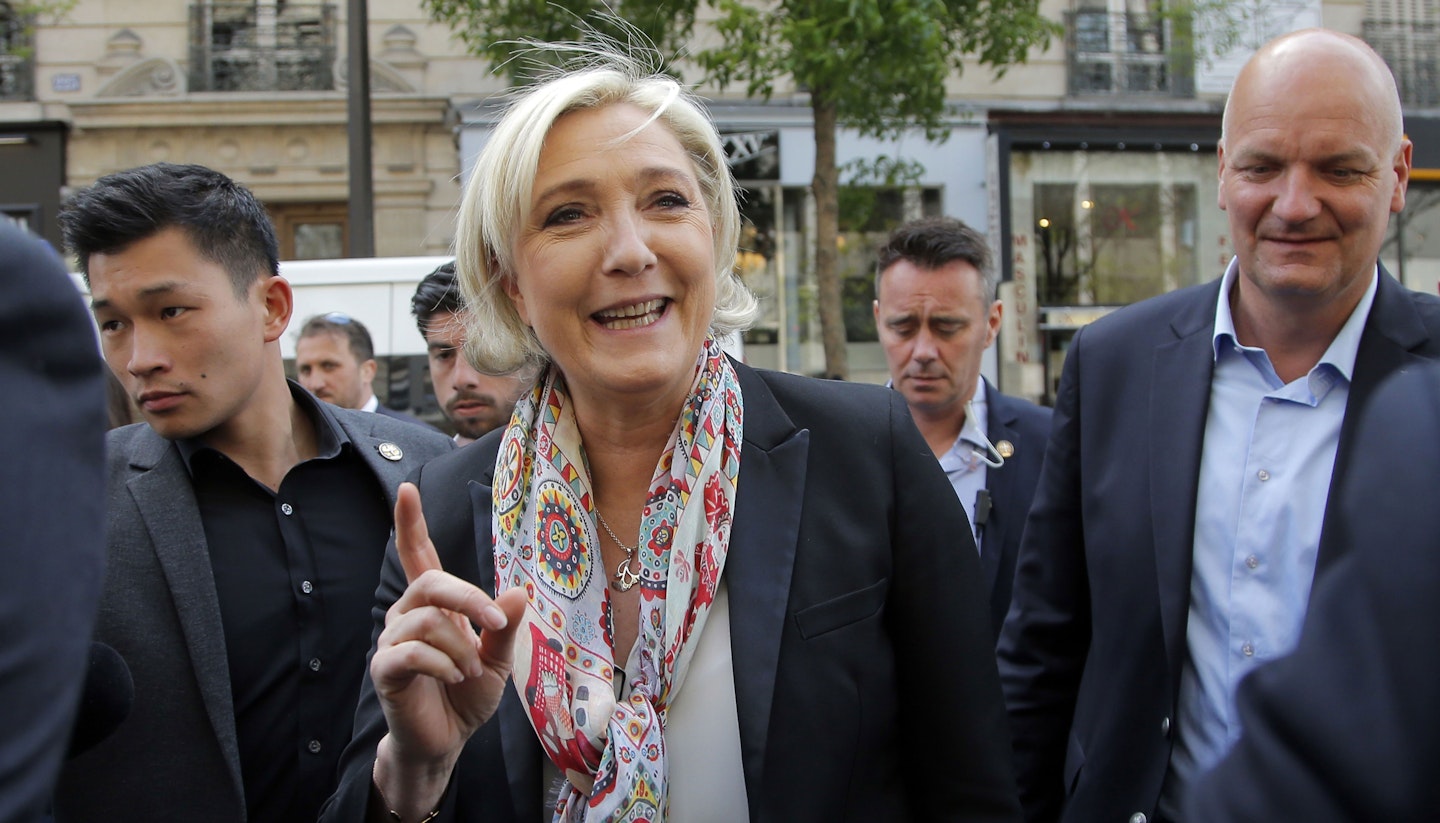
Like Donald Trump, Le Pen draws her popularity from a pronounced anti-establishment stance.
Front National voters are united "by a sense that they don’t feel represented by the workings of the current political system", politics professor Joël Gombin tells the Guardian.
Critics point out that Le Pen's efforts to "detox" the Front National of its vile, racist rhetoric are potentially more toxic than her father's views, since they afford the party the deceptive appearance of acceptability.
Paying lip service to a fresh image in a public relations drive is one thing, but Le Pen's policies are still vehemently hard-line. Her "France for the French" motto is a key element of her campaign, as is depicting Islam as the country's biggest threat.
In her victory speech today, the FN leader was typically theatrical and dogmatic, branded herself "the candidate of the people" who "appeals to all patriots".
If she wins on 7 May, Le Pen will work to sever ties with the EU, restrict nationality rights and prioritise French nationals for housing, jobs and welfare.
It's unclear how exactly this will play out but one thing is for sure: a France with Le Pen involved will be unlike anything the country has seen before in its long and colourful history.
Read More: Leader Of Women's Equality Party To Stand Against "Misogynist" MP In Election Race
Read More: What Donald Trump's Election Means For Women
